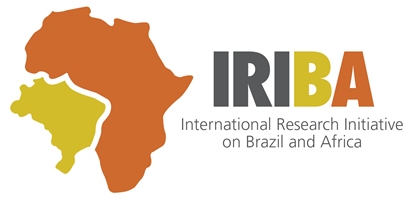 Ed Amann is Professor of Brazilian Studies at Leiden University Institute for History, and co-led the IRIBA project with Armando Barrientos. He reflects here on our research findings, and makes a few forecasts in light of new developments in the political climate in Brazil – and globally.
Ed Amann is Professor of Brazilian Studies at Leiden University Institute for History, and co-led the IRIBA project with Armando Barrientos. He reflects here on our research findings, and makes a few forecasts in light of new developments in the political climate in Brazil – and globally.
Were there any surprises for you personally that came up through the IRIBA research?
One thing was the evidence uncovered about poverty alleviation. In that, a lot of the motive force behind poverty alleviation came from changes in the labour market, and not just the conditional cash transfers and the Bolsa Família. I think we opened up that box a little bit. The other thing that surprised me was how much change has taken place in the agricultural sector. The increase in productivity is quite startling. And that contrasts with what you’ll find in other sectors, where the productivity has stagnated. Agriculture is much more of a success story than I certainly knew or imagined before the project took place. Some of the other things perhaps surprised me a bit less – we found all kinds of structural problems. Infrastructure is one of them. I wrote a paper on that, along with three other people.
How do you think the result of the recent US election will impact Brazil?
I don’t think it will be a priority area for the US Administration. I think they’re going to be wanting to resolve the situation in the Middle East, and to tackle the relationship with Putin. There’s been a history of US administrations coming into power and saying, we’re going to take relationships with Latin America more seriously, we’re going to bring them up the list of priorities, and then something happens – normally in the Middle East – and that just gets pushed back down again. I don’t see things being any different this time. Clearly, in terms of Mexico there could be major implications with NAFTA. Brazil at the moment doesn’t have any trade deal with the United States.
What about in terms of immigration?
The scale of immigration from Brazil to the US has been a lot less than from some of the Central American countries, so although it will have an impact, it’ll be a lot less than other parts of the region. The implications for Brazil are not as significant as they will be for countries that have either got a trade deal with the US, like Mexico for example, or Chile – or countries that are major exporters of people to the US. Like Guatemala, like Honduras, like Mexico. The other point is of course that we’ve just had a change of government in Brazil, to a right wing government. So the scope there might have been for conflict, let’s say between the previous government in Brazil, which was more left wing under Dilma, and a Trump Administration – I think will be less.
Can you describe the current climate in terms of infrastructure?
Well there’s a huge need to upgrade infrastructure, recognised across the board, but it wasn’t happening. Why wasn’t it happening? Lack of finance, problems with regulation and rules. Difficulties persuading investors that the projects would actually yield revenues over the years; difficulties persuading them that the regulations would stay stable and evenly enforced. Those were some of the immediately obvious problems. What’s becoming clearer in retrospect is the impact of the corruption scandal, because many of the enterprises implicated in it are large infrastructure firms, specialising in large infrastructure projects. Indeed, the largest firm of the lot – Odebrecht – their CEO’s currently in jail. It’s hard to see how it’s going to be easily possible to ramp up infrastructure spending when you have major contractors under such scrutiny. Anything that would involve these contractors in bidding for government contracts, they’ll probably feel a bit nervous about it – and I suspect the government will feel nervous about employing these contractors. It’ll be under super-scrutiny.
So all those massive railroads that just drop off in the middle of nowhere might stay that way for a while.
Maybe so. Of course, the public sector resources to make things happen are really going to be very tight in the future. There’s a plan to freeze spending on the horizon. The Development Bank, which would have provided a lot of the funding is itself coming under close scrutiny. And the new president of the Development Bank comes from a much more economically liberal background, in the sense that they’re more sceptical about the role of big government, big development banks. I think there’s going to be less activity from the Development Bank than there used to be. I’m not optimistic in terms of infrastructure being ramped up quickly.
How about growth? Obviously, the country’s in recession at the moment –
I think by the end of next year it will have broken back into positive growth. There’s no doubt about it. There are a few things driving that – one is the resolution to political crisis. Investor confidence is beginning to return. The government have made various market-friendly noises, and that’s gotten people interested in buying up assets in Brazil. I think that might be enough to unlock some private sector investment at least, and get the economy moving again. Plus, commodity prices are beginning to rise again. We’ve seen that with oil. Along with some other commodities, that’s going to help Brazil on average. There are a few things that I think are going to push Brazil along. Although, we’re talking about a return to growth which is going to involve quite modest rates of expansion. 1 per cent, 2 per cent a year. This is not a return to the boom years, no.
Is this return to growth likely to fall under the umbrella of inclusive, or pro-poor growth?
In the past, growth was mainly increasing because of things like the Bolsa Família. It’s very difficult to see new programmes like that being launched in the future; the political climate’s not right for that, nor is the budgetary situation. Indeed, the programmes that already exist, like Bolsa – it’s becoming increasingly obvious that they’re going to have to deal with the impact of this real term spending freeze. That probably means, in the future, restricting access to those programmes, strengthening the conditionality attached to them. I don’t see them growing in scope.
What does that mean for the Brazilian development model?
Parts of it are still intact, of course. The Bolsa is not going to disappear. I think it’ll be tightened up. We will see a return to positive economic growth fairly soon, that is going to help people. Inflation remains fairly low and under control, and that’s going to help. But the rate at which people are lifted out of poverty, that we saw in the 2000s, we’re not likely to see that in the next 5-6 years. I think the pace of improvement is going to slow right down. We’re already having to cope with the impact of the deepest recession Brazil’s experienced in several decades. I’m not saying that parts of the model are going to be torn up and destroyed, they won’t. Many of the things are still there – the low inflation is still there, the Bolsa Família is still there, the agricultural sector is still there, and very powerful and very efficient. But some of the favourable tailwinds that the economy experienced, and that people benefitted from, are no longer around.
Going back to the question you put earlier; what does a Trump Administration mean for trade policy in the US and the access of Brazil’s exporters to the US market? That’s a big issue. The other issue surrounds trade deals that could have been signed with the European Union. Brazil is part of Mercosur, a regional trade deal that includes Argentina, Uruguay and Paraguay. Venezuela. There was movement towards signing a trade deal with the EU; is that going to happen now the EU is under stress? The deal the EU were going to sign with Canada has been put on hold because of the exception that Wallonia province in Belgium has taken to it. You could argue that there might be even more opposition to a deal with Brazil, because it will threaten the interests of so many farmers within the EU.
So I think one of the clouds on the horizon for Brazil is market access really, in its traditional markets of the EU and the United States. Then you’re talking about China; there’s no obvious sign that Chinese trade policy is going to be more restrictive, but it does appear that Chinese growth in the next 5-10 years is likely to be more modest than we’ve seen in the last 20 years. That is, again, something Brazil is going to have to grasp and deal with.
Protectionism, in potential export markets?
Absolutely, I think that’s right – the trend is absolutely towards more protectionism. In the US, it’s undisputable now, with the new administration. And possibly even the EU, in the sense that it’s unlikely that we’re going to see more trade deals signed by the EU in the near future. The global tendency, the zeitgeist is against trade deals at the moment. We went through a period in the late-1980s and 1990s where trade deals were seen to be a sort of inevitability, and we would see more and more of them, and countries would sign up to more and more deals, with an increasing number of countries. It was part of the tenor of the times. Not anymore.
Can you identify any lessons that other emerging economies could take from Brazil’s recent experience?
In the agricultural field there’s a lot that Africa could learn, in terms of the way in which Brazil has used technology to strengthen and diversify its agricultural base; the way in which it’s taken advantage of changes in the global marketplace. In policy design, as regards conditional cash transfer programmes, it’s very obvious that there are lessons that Africa can draw, and indeed has already drawn – if you look at for example Ghana’s implementation of conditional cash transfer programmes. Another thing that possibly can be drawn from the Brazilian experience, and one of our papers picks up on it, is the fight against corruption. We have a paper by Mariana Prado and Lindsey Carson which looks at the way in which corruption has been increasingly clamped down on in Brazil. Mechanisms have been designed to minimise the potential for corruption. Again, I think this is something that has broader application, certainly in some parts of Africa – West Africa, East Africa, where corruption is a real issue.
